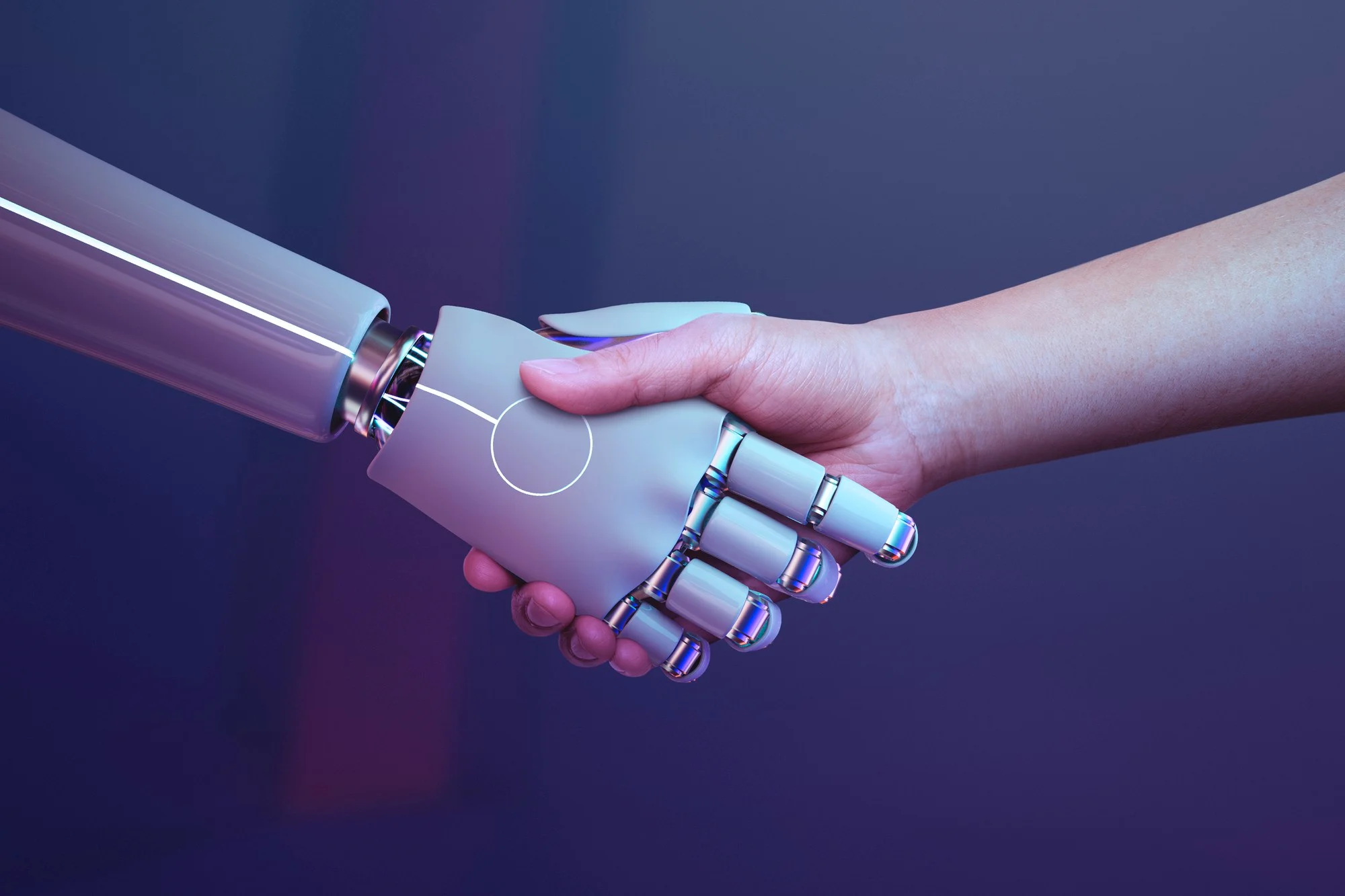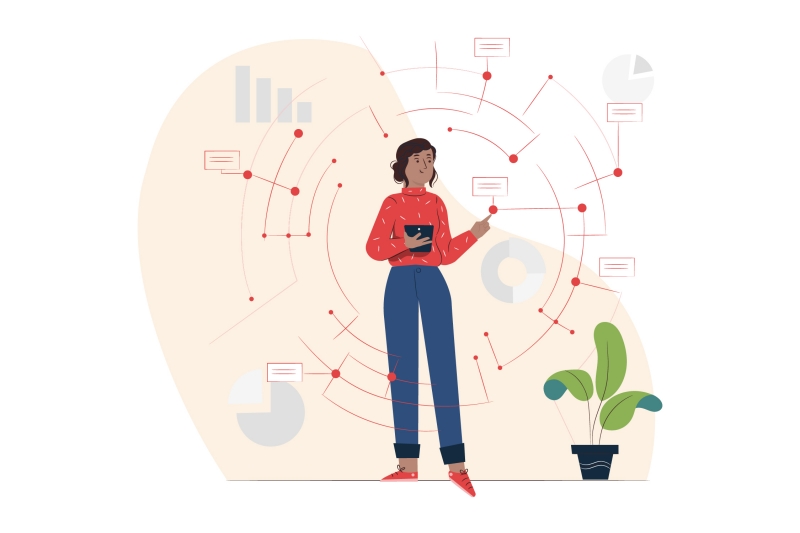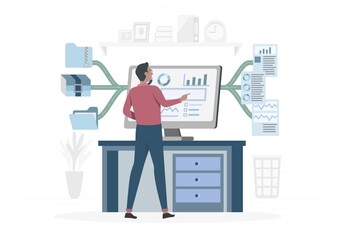My Tools for the AI Age
AI is not just a fad, but a key technology that will fundamentally change our lives. Have you ever thought about the role AI could play in your day-to-day work? Just look at the healthcare sector! Doctors make accurate diagnoses thanks to AI. Or traffic, in a few years' time, autonomous vehicles could dominate our roads. Even in journalism, AI spits out precise analyses of current soccer matches within seconds.
What if this ongoing AI revolution also affects your job? Don't panic. It could be your ticket to a better, more efficient working day. Just imagine the boring, routine tasks could soon be taken over by AI so you can focus on what you really enjoy. Sounds like a dream, doesn't it?

The skills for change
Making this dream a reality requires preparation, but don't worry, you don't have to dive deep into machine learning. It's more about making you-the human element-fit for the AI future. Above all, it is important to hone your soft skills and adapt them to current changes. And some skills are key, such as your resilience, knowledge of change management, purpose, and your ability to use job crafting to optimize your work. Not only will you be able to keep up with AI, you'll even be able to use it to your advantage.
Strive to be resilient!
Your job could change as a result of AI and may even be at risk. Take a deep breath-this doesn't mean you should panic. Surprised? You shouldn’t be. However, this isn't just about staying calm. It's about becoming resilient.
What is resilience?

Resilience may sound like a technical term at first, but it's actually something very human. In short, it's about our ability to overcome crises and use them as an opportunity for development. However, resilience goes even further. It helps us not only to withstand the winds of life, but to emerge stronger and wiser.
What are the seven resilience factors?
Resilience is described as consisting of several factors - often referred to as the "7 pillars of resilience". These can equip you to overcome challenges more easily. The seven resilience factors are:
- 1. Optimism: Who says you have it or you don’t? Optimism can be trained. It's about recognizing the positive in everyday life, appreciating the small moments and focusing on the things that go well.
- 2. Self-efficacy: You are not a passenger in your own life. You are the captain. Believe that you can influence your environment and control your own destiny.
- 3. Responsibility: Personal responsibility is the key. When you take control, it feels less like you are being tossed around by the ebb and flow of life.
- 4. Acceptance: Sometimes we need to accept what we can't change in order to focus on what we have control over instead. Yes, the AI will be there, but you can still decide how you react to it.
- 5. Solution orientation: It is not just about recognizing problems, but about tackling them. Constructive and goal-oriented thinking is the way forward.
- 6. Social skills: Together we are stronger. Networking, talking and seeking support are key components of resilience.
- 7. Planning for the future: Visualizing, setting and pursuing goals. Even if the future sometimes seems uncertain, a clear plan gives you direction.
When you start practicing these resilience factors , you will notice how you feel stronger, ready to face the challenges of AI and all the other twists and turns that you will encounter in life.
Change management - theory and practice

Change has always affected companies and individuals. Undergoing change is nothing new - there's even a name for it: change management. Artificial intelligence (AI) presents us all with new challenges. But in the midst of this change, tried and true methods are available that can help us become more accustomed. The theory and practice of change management are about how we can adapt and proactively shape AI change, both individually and as a team. Research findings can help us to better navigate changes associated with AI.
Fear of change?
We humans value habits. In the past, it may have been advantageous to be skeptical of change. But nowadays, some changes, such as those brought about by AI, are inevitable. There are five typical phases of how we react to change: Ignore, Defend, Fear, Approach and Accept. Where do you stand? Where do the members of your team stand? Do they think AI doesn't affect them? Do they think the hype is nonsensical? Are they paralyzed by fear for their job? How do you manage to guide them-and yourself-through the difficult phases towards acceptance?

Managing change successfully
Successful change management begins with an awareness of the need for change. Explain to your team why the current situation is not sustainable. Point out the potential benefits of AI and develop a vision for the future together. Once this vision is clear, the strategy follows: how can AI be used in the best possible way? Developing concrete plans and involving the team is essential here. But be careful, resistance to change is normal. Pushback can be disguised as an indication of fear or concern. Take this seriously and work together to find solutions. Finally, once the change has been initiated, it is important to anchor it within the team. Regular meetings in which the success and application of AI in everyday life are discussed, are a helpful tool here.
Change management can be a fascinating field yielding many strategies you can use to ease transition. By understanding how change works and how you can proactively influence it, you will be well equipped to overcome these challenges. Change management will give you and your team the chance to grow as new challenges arise.
Purpose - finding your own why
In today's world, even seemingly "future-proof" jobs such as those of programmers, lawyers or artists, are being influenced by AI. This prompts the question: what part of my job is most important to me? To answer this question, we need to focus on our "purpose", the deeper meaning of our work. What gives us energy and satisfaction? Discovering your purpose often requires self-reflection. Look back on your professional career and ask yourself, in which moments did you feel at your best? Where did you find "flow"? What helps you to do your job well? What passion are you looking to satisfy with your job? By answering questions like these for yourself, you can find out what is really important to you.

Happier through job crafting
Once you have found your purpose, ask yourself if your current job compliments that purpose. If not, don’t worry, you don't have to change jobs immediately. The concept of 'job crafting' allows you to shape your role to fit your purpose. In AI-driven times, you have the opportunity to make the most of your talents and delegate some of your least favorite tasks to patient algorithms. It also helps to set clear goals and find allies to support you.
Technological change requires us to think about our role in the world of work. But it is also an opportunity for personal and professional development. If you know your purpose, you can also take better advantage of AI and find a way to make AI work for you.

Remember, it's not just about technology, it's about you too. Take advantage of the opportunities available to you. If you need support in developing the soft skills to move forward in the AI age so you can feel confident and empowered, take a look at our e-training " Moving into the Age of AI with Confidence ". It will help you to be well-prepared to take on your future. Good luck on your journey!


